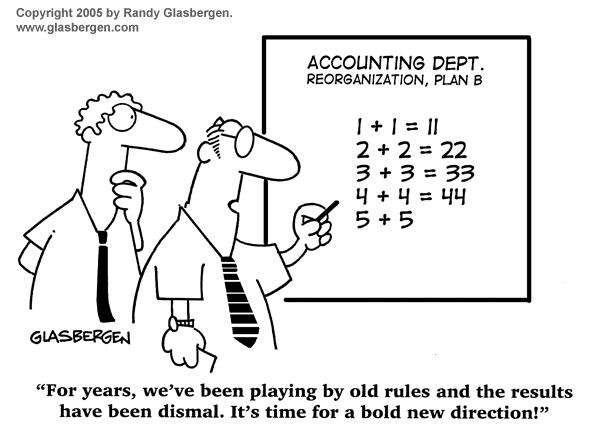

Making the ORPP Work
I have said on several occasions that I think that the Ontario Retirement Pension Plan (ORPP) is a bad idea and is in fact a worse idea than expanding the Canada Pension Plan.
On December 17, 2014, the Ontario government released a consultation paper and in recent weeks, Ontario’s Associate Minister of Finance responsible for the ORPP, Mitzie Hunter has been travelling the Province holding consultation sessions about the program.
Several people in the past week have reported back to me that Ontario appears irrevocably committed to the ORPP. I thought that this was just politics and the program would be abandoned once the truth came out about how hard the ORPP is going to be to build and sustain and how few voters and taxpayers in the province really want this thing. I am told that I was wrong and that this monster program is going ahead regardless of the opposition that is mounted by the private sector, workers, and taxpayers in Ontario.
So I was recently asked to consider the advice that I would give the Province to make the ORPP work. A hard job for sure for someone who thinks we are crazy to do this in the first place. But, as a consultant that likes to solve problems, I wanted to take on the challenge. I see two clear priorities on which we need to focus to make the program a success:
First, the program must be actuarially sound. Promising defined benefits for a fixed contribution is a tricky problem. For those that have read my commentaries on the CPP, you will know that there is no guarantee that the current rate that we contribute to that program will deliver the benefits currently promised. If things go badly for the geniuses running the CPP, then future workers are going to have to pay more or future retirees are going to have to receive less. Of course future taxpayers might also have to chip in, which would include both workers and retirees, but the government could sneak up on that group in a less visible manner.
Second, the program needs to be administratively efficient. One of the key arguments for expanding the CPP was that the administrative framework was in place and what we simply needed was to expand the earnings covered and/or rate of contribution and we would be managing more money without any more administrative expense. Although I am against expanding the CPP, I have to agree with this point. For Ontario to go it alone, they will need to setup some sort of system to administer this new gem. For my money, if I were the Associate Minister I would go ‘cap in hand’ to the Federal Government and ask them to administer the program for a reasonable fee which will be far less than the cost of a made-in-Ontario administrative office. I know that politicians are loathe to go ‘cap in hand’ to anyone, and a Provincial Liberal might not even get an appointment with a Federal Conservative so this might be a dead end. But if it is a dead end, we are going to spend many millions more than we need to spend so someone should try to build a road if they can.
There are three questions on which the government is consulting: What is a comparable plan that Ontario should consider is worthy of exempting an employer from the ORPP? What are the minimum and maximum earnings on which participants in the ORPP should contribute? What should we do about the self-employed? Here are the three right answers – like them or not.
I have already written here about comparable plans. In a nutshell, defined contribution plans should get the same exemption as defined benefit and target benefit plans. If you want to differentiate plans then it should be done on the rate of contribution. Exempt any plan where the employer contributes more than a threshold amount. Whether that threshold should be 1.9% of earnings or some greater number is a debate for the future. I am not going to spend any time on it now since I am being told that the government isn’t going to budge on this matter and that sponsors of DC plans are out of luck.
It really doesn’t matter anyway, because the whole idea of comparable plans has to be tossed out. Back to my principle of making the program actuarially sound – it will be very hard if not impossible to do that if we have employees moving back and forth between exempt and non-exempt employers – remember, when actuaries set a fixed rate of contribution for a fixed retirement benefit, they do it by making sure that you pay more than you need to when you are young to cover the fact that you will be contributing less than you need to as you approach retirement. The only way this works is if you stay in the plan for your entire career. Letting every government worker early retire with a generous government pension and having them join the ORPP for their second career at age 55 is going to make me insane! On top of the actuarial math that most readers are happy to leave to me, administrative efficiency means that we need the membership and contributions to be maximized. I am estimating 7 million workers in Ontario. If we let 2 million of those workers out of the ORPP then that leaves 5 million of us to pay for the whole thing while we are already paying for 1 million+ workers in the government plans. Did I mention I might go insane?
What about earnings? One of my arguments against this whole idea is that I don’t even think that anyone is really clear about the problem that we are trying to solve. Problem Solving 101 – Step 1 – Identify the Problem. A recent McKinsey report tells us that the problem is that middle-to-high income earners are not saving enough. I have written more on that report here.
The smartest choice would be to simply start covering earnings above the YMPE ($53,600 in 2015) up to a limit of say two or two-and-a-half times the YMPE. But if you think back to my priority of administrative efficiency, this isn’t going to bring in nearly as many dollars as if we set the starting point at $3,500. If the earnings covered by the ORPP exclude everything under the YMPE then the administrative costs are going to be spread over smaller dollars and you may as well just call it another tax on the rich – the only problem is that in Ontario the rich are now anyone earning over the YMPE.
Finally, the self-employed: Because I am someone who believes in individual choice and because as someone who is self-employed I have retirement planning options that are not available to the average worker no one should be surprised that I am in favour of leaving the self-employed alone to arrange their own affairs. But if you have caught my theme by now you know that this isn’t the right answer. Just like with the CPP, the self-employed need to join the ORPP just like everyone else. If you want to build a universal system then you shouldn’t be surprised that you need to make it universal for everyone. That is what the word universal means.
I don’t get into politics – but at this point the Ontario Liberals are going to need one of three things to happen:
- They are going to have to make some hard choices and disappoint many of their constituents to do this right.
- They are going to need Mr. Trudeau or Mr. Mulcair to be elected Prime Minister and come to bail them out by expanding the CPP.
- They are going to need Mr. Harper to lose his mind like I am about to.
Stay tuned – I can guarantee there is more to come on this subject and that is the only guarantee workers should really count on.




Comments
2